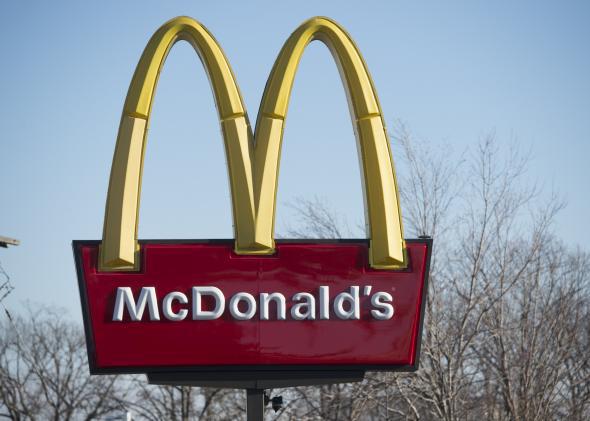When Steve Easterbrook took over as McDonald’s chief executive in March, the chain was in crisis. Don Thompson, Easterbrook’s predecessor, had resigned in a blaze of spectacular failure: Five straight quarters of decline, the company’s worst monthly sales in more than a decade, a tainted meat scandal in China, a potentially disastrous employment ruling from the National Labor Relations Board, a terrifying makeover of Ronald McDonald, a well-meaning if largely misguided transparency campaign, and countless public-relations blowups caused by striking fast-food workers.
Two months later, McDonald’s crisis hasn’t abated. But on Monday, Easterbrook laid out his much-anticipated plan to turn the company around.
To get its business back on track, McDonald’s is handing more control to its “incredible network of dedicated franchisees,” the company said. Over the next three years, McDonald’s plans to accelerate its refranchising—that is, turning company-owned stores into franchised ones. By the end of 2018, it plans to convert 3,500 restaurants into franchises such that 90 percent of its locations will be franchised globally (up from a current 81 percent). Previously, McDonald’s had planned to refranchise at least 1,500 restaurants by the end of 2016. Easterbrook has reorganized the company’s operations into four main segments: the U.S.; international lead markets (Australia, Canada, France, Germany, and the U.K.); high-growth markets (China, Italy, Poland, Russia, South Korea, Spain, Switzerland, and the Netherlands); and foundational markets (about 100 different countries).
On a conference call, Easterbook explained that in addition to bringing financial benefits—like more stable cash flow—he expected refranchising to be “incredibly liberating” as well. “We’re a franchiser, and that has always been part of the essence of what’s made McDonald’s successful,” he said. From 2006 to 2011, Easterbrook led McDonald’s U.K. operations, heading up more than 1,200 restaurants. During that time, he helped the chain move from 35 percent franchised in the region to 65 percent franchised. “The local rush of ownership really did underpin and infuse a system that was looking to be lit up,” Easterbook told investors on Monday. “So I’ve a strong philosophical commitment behind franchising, I think it’s incredibly important to our business.”
Easterbrook’s somewhat rosy outlook comes at a time when tensions between McDonald’s and its franchisees are running high. In April, a survey of U.S. franchisees from Janney Capital Markets gave McDonald’s its most dismal six-month outlook in 11 years—somewhere between “poor” and “fair.” “McDonald’s system is broken,” one franchisee wrote in response to the survey. “They talk menu reduction to help our people, simplify our menu for customers—but add products to help sales and it does not work. We continue to fall and fall.” Added another, “leadership is out of touch with the financial realities that owner/operators are facing.” McDonald’s countered that the report didn’t accurately capture franchisee sentiment, since it surveyed less than 1 percent of them.
Franchisees have plenty of reason to sense a disconnect. It’s true that, under Easterbrook, McDonald’s has emphasized whittling down its menu to ease the burden on franchisees and their staff. At the same time, it’s also begun piloting new items. “Create your taste,” a concept that lets customers personalize their burgers, is scheduled to be tested in 2,000 out of roughly 14,000 U.S. stores this year. The company has also rolled out an artisan chicken sandwich and is testing all-day breakfast at 94 restaurants in the San Diego area. Menu issues aside, McDonald’s also angered franchisees and employees alike in April when it announced plans to increase hourly pay in the U.S. Employees were upset because the pay raise applied only to workers at company-owned stores, a small minority of McDonald’s domestic locations. Franchisees, for their part, resented that the wage increase at company stores might put pressure on them to do similarly.
On top of all that, Easterbrook barely mentioned what McDonald’s plans to do to address possibly its biggest challenge: customers’ worsening perceptions of its food. On the call with investors, he talked about making “big moves” and having “wonderful opportunities” with personalizing and customizing food, but few new details on when or how that would happen. That might explain why Wall Street wasn’t sold—shares of McDonald’s closed down 1.7 percent on Monday, to $96.13. On the other hand, Easterbrook seemed quite earnest when he told investors, repeatedly, that he intends to carefully reassess all the company’s decisions, and that he recognizes it’s time for a change. “The message is clear. We’re not on our game,” Easterbrook said in a video-taped statement. “The numbers don’t lie.”
